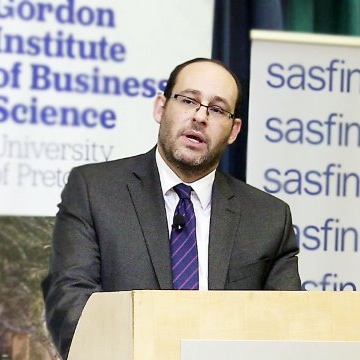News
Gordhan and Pogrund look at SA’s crossroads and charting way forward
Put a rabbi – whose made his name through ethics and governance – and a consummate activist/politician in a business school auditorium with microphones and an educated audience, and you get some seriously honest discussion about the rights and wrongs of this country.

SIMON SHEAR
Rabbi Gideon Pogrund recently introduced Pravin Gordhan as special guest at a forum held at the Gordon Institute of Business Science (GIBS) in Johannesburg, to discuss the crossroads South Africa finds itself at and, more importantly, how society should to unite to chart a way forward.
Pogrund, who directs the Ethics and Governance Think Tank at GIBS, commenced by recalling anthropologist Ruth Benedict’s distinction between “guilt cultures” and “shame cultures”.
In a guilt society, behaviour is directed by an internal moral compass and a sense of guilt at moral transgression. In a shame society, by contrast, behaviour is modulated with reference to others, to how our actions may cause us to be perceived.
South Africa’s leadership crisis is so acute, Pogrund suggested, that some of our policymakers are no longer subject even to being shamed. “They seem to lack a moral compass and a conscience, the source of which a sense of guilt arises; but they also seem to be arrogantly indifferent and unmoved by any sense of shame.”
Building on Pogrund’s concerns about the current climate of impunity, Gordhan sought to outline structural causes of excessive rent-seeking and greed.
Despite enormous historical progress, inequality remains a global scourge. In most countries, wealth is concentrated among a tiny elite, while wages are stagnant.
Turning to South Africa, Gordhan said that while there is clearly a crisis of governance and ethics, there is also a crisis of wealth and income inequality, “reflected in the fact that we still haven’t got rid of the structural features of apartheid”.
It is in this context that the politics of patronage and a culture of greed has emerged, leading to “corruption on a systemic scale, which results in what we today call state capture in our own society”.
Taking the social grant payment scandal as a case in point of gratuitous rent seeking, Gordhan voiced concern that “materialism and consumerism, and the lack of shame and guilt, allow for unprecedented and an unrestrained greed to be a key driver both in the public sector in terms of stealing and in the private sector in terms of the assembling of profits or bonuses”.
At this conjuncture, Gordhan believes that shame and guilt alone will not change the attitude of those in power. In order to effect change, we need to mobilise society, we need a more acute understanding of how patronage networks emerge and are sustained.
“What is going to shift society to be mobilised is a keener awareness going beyond the connection of dots. How do systems like these work, and how does building the politics and economics, the behavioural dimensions and dynamics work to actually inform the kind of rent seeking and patronage processes. Putting it more simply, how the stealing and neglecting processes actually work.”
There’s an immediate lesson for the still-comfortable middle classes. Corruption and state capture may seem like abstract problems, but complacency is not an option, he explains. Gordhan suggested that the upper middle classes of all races are more concerned with the fees for moving their investments offshore, than seeking practical ways to resist corruption.
A discussion is urgently required about resisting corruption and the abuse of power. The middle class needs to ask itself: “How do we actually contribute to revitalising the vision we had in the National Development Plan, of the kind of South Africa that we actually want. How do we all become active in one way or another, to contribute to the realisation of those plans and, more importantly, contribute to shifting the balance in the right kind of way?”
Turning to the ANC’s December conference, Gordhan explained that while most South Africans are still committed to the ANC, people want to see a change in leadership within the party. The majority of people desire an ANC “capable of leading South Africa in a different economy, a more cohesive society, a socially just society, a society that actually begins to live the values that is in our Constitution”.
A more cohesive society depends on a more inclusive economy. Somewhat counterintuitively, Gordhan suggested that inclusive growth requires radical steps outlined by Cyril Ramaphosa’s leadership campaign. However, Gordhan was careful to point out that “radical” in this context referred to profound steps towards achieving inclusive growth, rather than populist policies unguided by reason.
Rather than passively waiting for a resolution in December, the lesson may be that all communities need to mobilise and join together, to try to understand our society but also to change it.